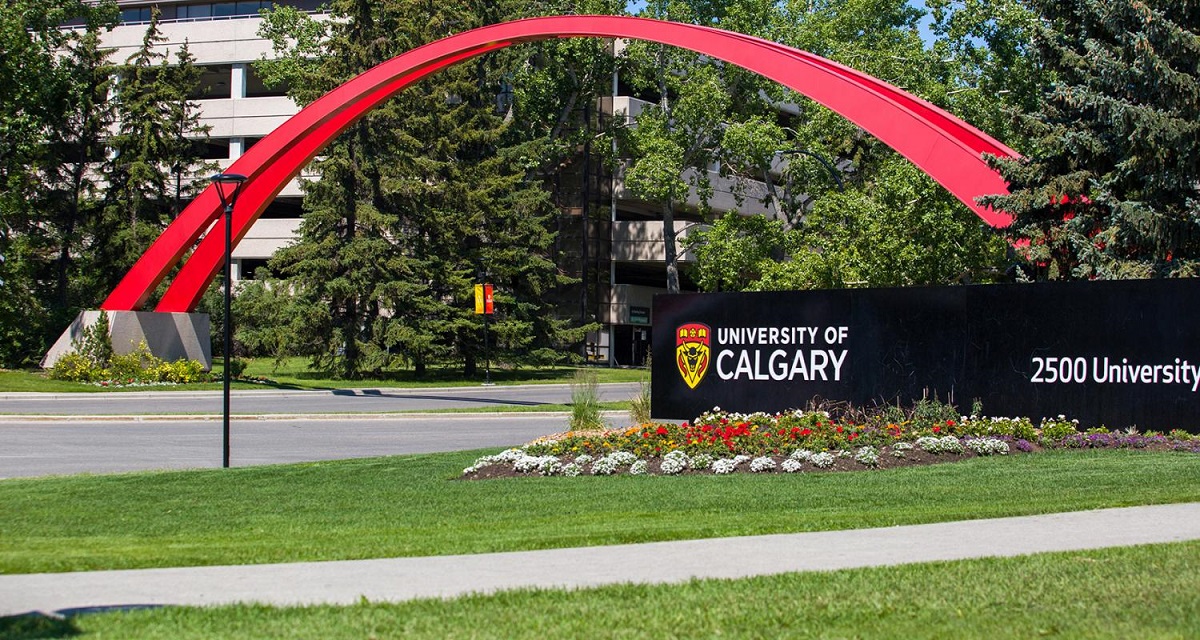
Job ID: 29422
Updated: August 25, 2023
Location: Main Campus
We would like to take this opportunity to acknowledge the traditional territories of the people of the Treaty 7 region in Southern Alberta. The City of Calgary is also home to Métis Nation of Alberta, Region III.
Position Overview
The Department of Biological Sciences in the Faculty of Science invites applications for a Research Associate in Marine and Wastewater Microbial Metagenomics and Bioinformatics. This Full-time Fixed Term position is for approximately 12 months (based on length of grant funding), with the possibility of extension.
Reporting to the Principal Investigator, this position will focus on characterisation of microbial communities in marine ecosystem(s) that are (or may be) at risk of oil spill pollution in the Canadian Arctic Ocean and Atlantic Ocean, including seawater, bottom sediments, and sea ice (thin, thick, first year, multi-year, etc). In addition to determining in situ microbial community structure and function, the successful candidate will study the effect of pollutants and microbial remediation of pollutants (i.e., mock oil spills in experimental microcosms or larger scale mesocosms) in different sample types and/or geographic areas. This will include screening genomes and metagenomes for genes associated with hydrocarbon biodegradation using the CANT HYD software tool. Applying and using pipelines for assessing viral diversity in aquatic samples will be a complementary activity for the Research Associate.
This successful candidate will carry out assessments of microbial diversity and ecophysiology using existing and emerging genomic technologies related to metagenomic and amplicon sequence analysis (e.g., different sequencing strategies and platforms). The candidate should be able to carry out sequence analysis in aid of ecological interpretations, which may involve using or developing bioinformatics tools. The samples currently available for this work span the Canadian Arctic and sub-Arctic marine ecosystem. Future sampling will be carried out through small and/or large research vessels. including the Canadian Coast Guard research icebreaker Amundsen. Relevant field experience is a requirement.
Position Description
Summary of Key Responsibilities (job functions include but are not limited to):
- Installing and running bioinformatics tools for assessing and contrasting microbial communities
- Metagenomic library preparation, troubleshooting, analysis, and interpretation
- Amplicon library preparation, troubleshooting, analysis, and interpretation
- Incorporating environmental metadata for statistically tested ecological interpretations of marine microbial biodiversity and its potential to respond to different pollution events
- Nucleic acid extraction (DNA, RNA) from different kinds of samples using multiple approaches
- Microscopy applications for cell counting
- Participating in publication of results in peer-review journals is expected
- Maintain a clear and well-documented log of all data, data analyses, results, and lab work
- Meet with supervisor(s) regularly (e.g., monthly meetings, as well as interactions on a day-to-day basis) to provide update on status of experimental results
- Presentation of results to the MMG research group in weekly lab meetings (e.g., once every 6 weeks) and when applicable to project end users, sponsors or other researchers (e.g., at a conference)
- Understanding of standard operating procedures of the equipment used in the experimental protocols.
- Maintain a clean and safe laboratory work environment
- Manage time effectively to complete project work and contribute yearly research updates to program sponsors.
Qualifications / Requirements:
- PhD in Microbiology is required
- Experience with bioinformatics software applications and/or development, including those applied in but not limited to genomics, metagenomics and other microbial multi-omics applications is required
- Experience in and knowledge of environmental microbiology is required
- Familiarity and interest in marine microbial ecology and biogeography is required
- Understanding of hydrocarbon degradation and bioremediation is a requirement
- Experience in marine fieldwork on research vessels is a requirement
- Proficiency in Microsoft Office Programs, Unix/Linux, R (or other statistical softwares), scripting in Python (or Perl), server use and SLURM is a requirement
- Experience in analysing terabyte-scale sequencing data is a requirement
- Knowledge of WHMIS is required
- Ability to multi-task and deal with some repetitive tasks is required
- Strong organizational and time management skills is required
- Good verbal and written communication skills is required
- Must be comfortable working in a diverse research team and have good interpersonal skills
- Previous experience with mentoring early career scientists (e.g. graduate students) is an asset
Application Deadline: August 24, 2023
We would like to thank all applicants in advance for submitting their resumes. Please note, only those candidates chosen to continue on through the selection process will be contacted.
Additional Information
This position is part of the AUPE bargaining unit, and falls under the Technical Job Family, Phase 2 (Salary range: $32.21 – $46.63/hour).
To find out more about management and staff opportunities at the University of Calgary and all we have to offer, view our Management and Staff Careers website. For more information visit Careers in the Faculty of Science.
The University strongly recommends all faculty and staff are fully vaccinated against COVID-19.
About the University of Calgary
The University of Calgary is Canada’s leading next-generation university – a living, growing and youthful institution that embraces change and opportunity with a can-do attitude. Located in the nation’s most enterprising city, the university is making tremendous progress on its Eyes High journey to be recognized as one of Canada’s top five research universities, grounded in innovative learning and teaching and fully integrated with the community it both serves and leads. The University of Calgary inspires and supports discovery, creativity and innovation across all disciplines. For more information, visit ucalgary.ca.
The University of Calgary has launched an institution-wide Indigenous Strategy in line with the foundational goals of Eyes High, committing to creating a rich, vibrant, and culturally competent campus that welcomes and supports Indigenous Peoples, encourages Indigenous community partnerships, is inclusive of Indigenous perspectives in all that we do.
As an equitable and inclusive employer, the University of Calgary recognizes that a diverse staff/faculty benefits and enriches the work, learning and research experiences of the entire campus and greater community. We are committed to removing barriers that have been historically encountered by some people in our society. We strive to recruit individuals who will further enhance our diversity and will support their academic and professional success while they are here. In particular, we encourage members of the designated groups (women, Indigenous peoples, persons with disabilities, members of visible/racialized minorities, and diverse sexual orientation and gender identities) to apply. To ensure a fair and equitable assessment, we offer accommodation at any stage during the recruitment process to applicants with disabilities. Questions regarding [diversity] EDI at UCalgary can be sent to the Office of Equity, Diversity and Inclusion ([email protected]) and requests for accommodations can be sent to Human Resources ([email protected]).
Do you have most but not all the qualifications? Research show that women, racialized and visible minorities , and persons with disabilities are less likely to apply for jobs unless they meet every single qualification. At UCalgary we are committed to achieving equitable, diverse, inclusive and accessible employment practices and workplaces and encourage you to apply if you believe you are right for this role.
We encourage all qualified applicants to apply, however preference will be given to Canadian citizens and permanent residents of Canada.


